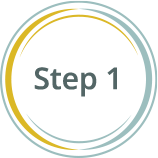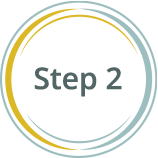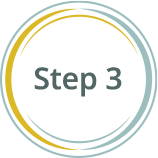What Is Our Online Co-Occurring Disorder Treatment?
Our online co-occurring disorder treatment plan is built around modern telemedicine practices and outpatient treatment techniques.
Most addiction and dual diagnosis treatment plans are provided either in outpatient treatment, inpatient treatment, or partial hospitalization. These three treatments generally entail the same thing, but with different levels of interaction between a patient and their therapists, doctors, and other specialists.
An outpatient treatment plan usually requires patients to check in with an outpatient clinic at set dates, attend in-person and group therapy sessions, mandatory or voluntary workshops, and receive medical care for conditions associated with their dual diagnosis.
But the majority of the recovery work is done at home – by working through the material, seeking support from loved ones, and developing positive habits through work and daily hobbies.

Partial hospitalization programs (PHP) are similar in that they don’t involve a long-term stay at a treatment facility but do require patients to come in and spend time within a psychiatric setting. In short, it can be considered a half step between an outpatient program and a fully residential program.
Residential or inpatient programs are the most committed and tend to be the most financially demanding. Patients spend anywhere from a few weeks to several months within a clinical or residential setting with other patients and a staff of trained personnel, including medical professionals.
But with the pandemic, as well as other factors, residential or inpatient treatment became out of the question for many people who are at risk or lack the resources needed to seek full-time residential treatment. For others, inpatient or residential treatment is more than a step above the kind of support they might need to get back on track and commit to long-term recovery.
As such, we formulated HIPAA-approved and state accredited online co-occurring disorder treatment programs. This allows patients to reliably partake in live and recorded online treatment sessions and workshops, one-on-one treatments, group therapy sessions, and much more, all from the comfort of their homes.
How Does Our Online Co-Occurring Disorders Treatment Work?
Telemedicine has seen a meteoric rise to relevance throughout every medical field in recent times. It’s abundantly clear to private practices, clinics, and hospitals everywhere that the ability to consult with patients and provide treatment via video and audio is extremely valuable. Depending on the treatment being offered, it can be just as productive as in-person treatment – especially in psychiatry and mental health.
We’ve implemented a treatment plan designed around a responsive and intuitive digital portal that patients can access from any home computer, tablet, or mobile device of their choosing. Every patient is given a schedule, depending on what program they’ve entered into, and are free to follow that schedule from the comfort of their home.
Our portal is accessible through the patient’s confidential login, granting them access to live scheduled one-on-one therapeutic sessions with our staff or group therapy sessions they can join at their discretion.
Other types of content include platform-exclusive workshops, recovery-related guest lectures, and resources to help continue recovery at home. Here is a basic rundown of how it works:

You can contact our Admissions Department for a psychiatric assessment via our contact number at 1-877-618-3007 or contact page.

We send you the paperwork related to admission, including our Rules and Regulation Agreements, HIPAA, and Liability protections, and we schedule an online evaluation.

We present you with a preliminary weekly schedule and a link to the portal. That’s it! You’re beginning your treatment.
Telemedicine is here to stay, and it’s only getting better as online connectivity and telecommunication tools improve. Studies show that long-distance psychiatric treatment is still effective and can help patients with diagnosed mental health issues improve even from the comfort of their home, and especially in conjunction with other treatment-related content.
But it’s also important to note that we aren’t encouraging patients to avoid the outside world. Whenever and wherever it is safe to do so, many of our programs involve finding and committing to hobbies that may include social interaction and physical activity.
Our online co-occurring disorder treatment program is also designed to eliminate barriers of entry and simplify access to addiction treatment and codependent mental health treatment. Even for patients who aren’t restricted by local regulations, online treatment can be an effective way to overcome the fear of visiting a clinic or therapist’s office and can help many begin immediately by visiting therapy from their own homes, before eventually joining a local group therapy session or visiting a nearby therapist’s office.

Why You Should Consider Online Co-Occurring Disorder Treatment
Maybe you’re worried about your first visit to a mental health professional, or you know that your current commitments are keeping you from reliably making it to every session on time. Maybe you’ve already completed a residential treatment program but feel that you need help staying on track and continuing your recovery program.
Or maybe the nearest program you can visit is just too far away, and you know that it wouldn’t be sustainable. There’s nothing less productive about seeking treatment from home, provided you’re speaking with medical professionals, heeding their advice, and checking in regularly. It’s convenient, effective, and safe.
Co-occurring disorders are characterized as a combination of substance use disorder and a codependent mental health issue, such as major depressive disorder, generalized anxiety, agoraphobia, or PTSD.
There are no effective cookie-cutter programs, or premade treatment plans to address the complex variety of factors behind any given person’s case, especially where multiple different conditions are diagnosed. Doctors and therapists are in the business of treating people, not individual conditions, and co-occurring disorders can be very difficult to treat from afar.
Our programs are designed to help patients get in touch with professionals and encourage them to dedicate time and energy to their recovery process. With our dedicated telemedicine portal, e-prescriptions, and a robust support system at home, we can help you identify treatments and coping mechanisms that work for you.
